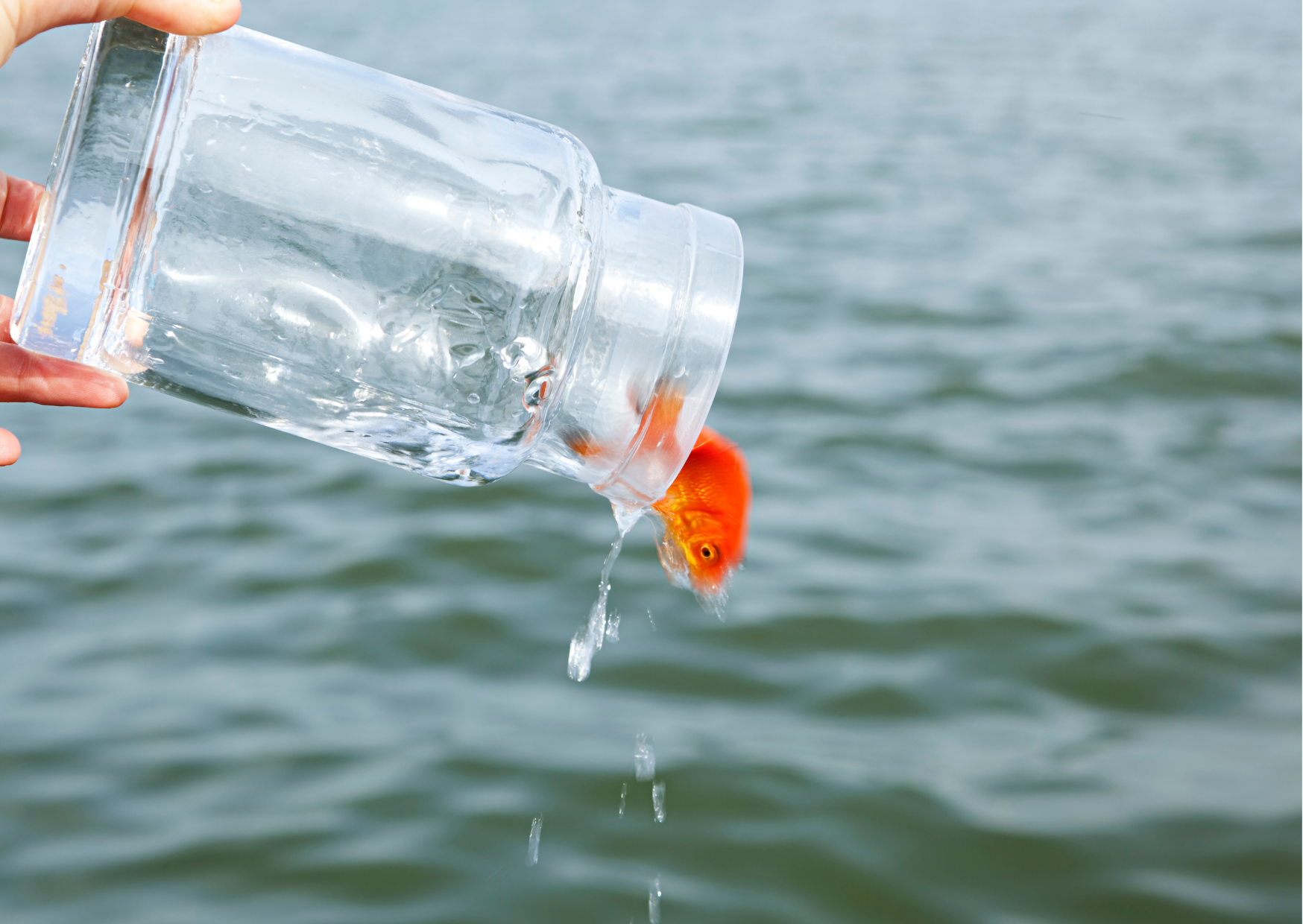Next working day delivery with Royal Mail Tracked 24
Can I release fish into the wild?

Releasing Tropical or Freshwater Fish into the Wild
In the United Kingdom, releasing fish into the wild is a criminal offence. The vast majority of ornamental fish, both tropical and freshwater, will not survive long in a wild waterway and are very unlikely to adapt to our low temperatures in the UK.
Sick fish, if released into the wild, pose the risk of passing on disease or parasites to native fish and wildlife. Likewise, fish that have outgrown their home aquarium habitat, or are not native to the UK, run the risk of affecting local ecosystems and seriously damaging and out-competing local fish stocks. Take the American crayfish as an example of the damage that can be done to local native habitats through irresponsible release.
Fishkeepers have a legal duty of care to their pets under the Animal Welfare Act, which states the need to provide, among other things, a suitable environment and protection from pain, suffering, injury and disease.
Signal crayfish (above): Found throughout England, these 15cm-long beasts are aggressive, breed faster than the native species, and damage river banks with their burrowing.
Transferring to Garden Ponds
Transferring coldwater fish, like goldfish, from your home aquarium to your garden pond is a different matter, because the water in your pond is likely to be filtered and very similar to the conditions in the aquarium. You are, in actuality, transferring a fish from one aquarium habitat, into another - a closed system which you manage, not a 'wild waterway'.
It must be considered, however, that the vast majority of 'tropical' fish will not survive the conditions of an outdoor pond nor the typical temperature of UK water outdoors, especially during the winter. Many 'fancy' goldfish will struggle too, as they are not adapted to the stressful conditions of a pond and will often be out-competed by common outdoor fish for food, being slow swimmers. The average temperature a tropical fish (and most fancy goldfish!) will be comfortable with is around 25°C.
Can I flush fish down the toilet?
Firstly, if you are even thinking about doing this, you are not fit to keep fish in the first place. Southern Water released a statement regarding this practice, reminding customers that the only thing that should be flushed down the toilet are the three P's - pee, poo and paper. Certainly not live animals or fish.
Flushing a diseased fish, or a dead fish that could potentially be carrying a disease or parasite, is not only criminal animal cruelty, but could potentially be releasing that disease into the wild. Plus, although remote, there is always the chance of passing those diseases on through the water to yourself or the immediate waterway environment. Would you feel comfortable sitting on a toilet knowing that a diseased fish had just been in there? There are certainly many diseases that can be passed from fish to human, just ask any fish store owner.
No fish, regardless of how hardy, is likely to survive being flushed into a sewerage system or septic tank, especially an ill fish. If you have a fish with a disease, you certainly should be taking steps to address and treat the problem, and never see 'flushing' as a solution to the problem of disease or disposal.

How do I dispose of a dead fish?
There are several options for disposing of a dead fish. You can bury it in the ground, but make sure to bury it deep enough to prevent other animals from digging it up.
Alternatively, you can put it in your garden compost bin to break down for use as garden fertilizer. To remove any odour and kill most developing bacteria or parasites on the corpse of a fish, you can place the fish in a freezer (in a bag!) for a few days before disposing of it.
Do not, under any circumstances, feed your dead fish to a pet cat or dog. The risk of passing on infections and parasites is very real.
To browse our range of fish disease treatments please click here.
To browse our range of healthy water treatment products please click here.
Photo credit(s): Canva Pro Licence











